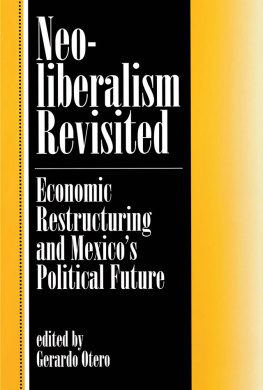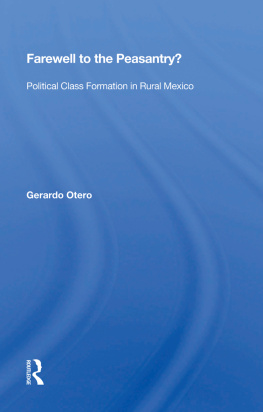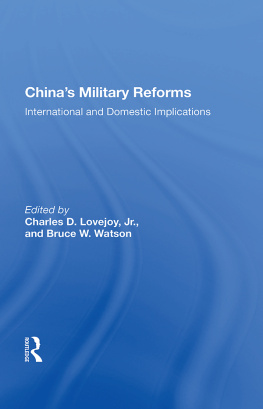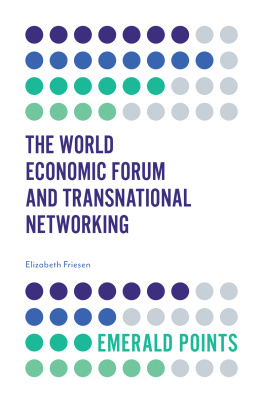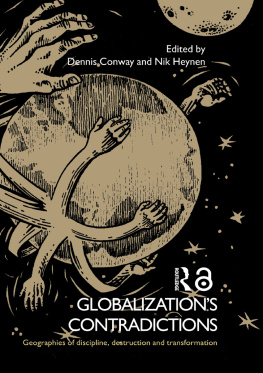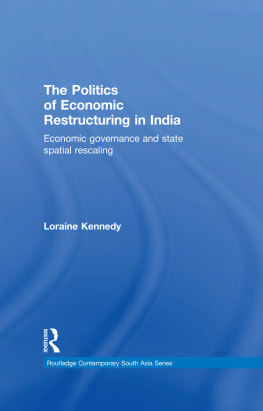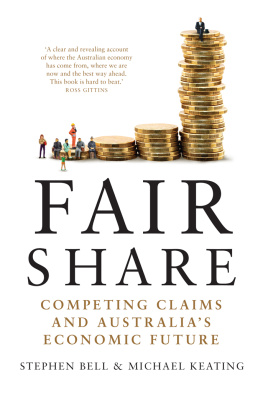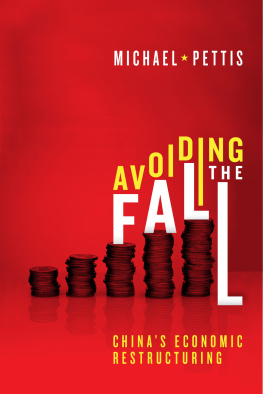Neoliberalism Revisited
Neoliberalism Revisited
Economic Restructuring and Mexico's Political Future
edited by
Gerardo Otero
Simon Fraser University
Portions of Chapters 1 and 12 by Gerardo Otero are from Gerardo Otero, "Mexico's Political Future(s) in a Globalizing Economy," Canadian Review of Sociology and Anthropology , 32(3):316-339. Reprinted with permission of the Canadian Sociology and Anthropology Association.
Portions of Chapter 9 by Lynn Stephen are taken from Lynn Stephen, "Women in Mexico's Popular Movements: Survival Strategies Against Ecological and Economic Impoverishment," Latin American Perspectives , 19(1):73-96, copyright 1992 by Sage Publications. Reprinted by permission of Sage Publications, Inc.
First published 1996 by Westview Press
Published 2018 by Routledge
711 Third Avenue, New York, NY 10017, USA
2 Park Square, Milton Park, Abingdon, Oxon OX14 4RN
Routledge is an imprint of the Taylor & Francis Group, an informa business
Copyright 1996 Taylor & Francis
All rights reserved. No part of this book may be reprinted or reproduced or utilised in any form or by any electronic, mechanical, or other means, now known or hereafter invented, including photocopying and recording, or in any information storage or retrieval system, without permission in writing from the publishers.
Notice:
Product or corporate names may be trademarks or registered trademarks, and are used only for identification and explanation without intent to infringe.
A CIP catalog record of this book is available from the Library of Congress.
ISBN 13: 978-0-8133-2441-8 (pbk)
ISBN 13: 978-0-8133-2440-1 (hbk)
Contents
Gerardo Otero
Gustavo del Castillo V.
Marilyn Gates
Enrique Dussel Peters
Gary Gereffi
Iln Semo
Francisco Valds Ugalde
Judith Teichman
Lynn Stephen
Neil Harvey
Barry Carr
Gerardo Otero
Guide
The International Development Research Centre (IDRC) in Ottawa and the Inter-American Organization for Higher Education (IOHE) in Quebec provided me with funds toward the editorial costs to produce this book. I am indebted to Paz Buttedahl of IDRC and Penny Houghton of IOHE for their kind support.
The chapters in this book have been revised numerous times, and for this I thank my diligent and patient contributors. In the process several people have offered generous and constructive criticism, particularly Leigh Pyne, University of Wisconsin at Madison, and James Wessman, State University of New York at Albany, who acted as external reviewers of previous versions. Barbara Ellington of Westview Press has used her keenly trained eyes and mind to make useful suggestions for revision. She has been very positive and supportive during this process. I greatly appreciate the critical readings of earlier versions of my introductory and concluding chapters by friends and colleagues, and I exonerate them from remaining limitations: Bill Canak, David Vern Carruthers, Hum berto Cartn de Grammont, Marilyn Gates, Gary Gereffi, Gordon Laxer, Ron Newton, Iln Semo, Peter Singelmann, Judith Teichman, and Francisco Valds Ugalde.
Several people at Simon Fraser university helped me in many ways. I am particularly grateful to Annita Mahoney, who entered numerous revisions of the manuscript. Students who were my research assistants at various times also gave me valuable aid. In chronological order, I thank Dylan Von Gunten, Marcel Vanderslyus, Kerry Preibisch, Robyn Adamache, Steffanie Scott, Danielle Scott, and Brian Green. My wife, Paty, and our sons, Alex and Rodrigo, have provided me with love and emotional support, and I thus dedicate my efforts to them.
Gerardo Otero
1
Neoliberal Reform and Politics in Mexico: An Overview
Gerardo Otero
Mexican government and civil society face enormous challenges brought about by neoliberal economic restructuring at a time when democratic political transition is simultaneously at the forefront of national and international agendas. After the 1982 debt crisis in Mexico and the introduction of neoliberal reforms, a critical dilemma came to the fore: Would the process of economic restructuring involve a more equitable redistribution of income and thus be compatible with a sustained transition to political democracy? Although it is hard to establish that income redistribution is a prerequisite for a democratic transition, it should be clear that without such economic reform an authoritarian and repressive political regime would be more likely to emerge than a democracy. Part of the dilemma for the Mexican regime is that it confronts nearly insurmountable international pressures to continue neoliberal economic restructuring. These pressures have been exacerbated as the world economy becomes increasingly global.
The implementation or the North American Free Trade Agreement (NAFTA) on 1 January 1994, linking Mexico with Canada and the United States, further strengthens neoliberal ideology and the forces of global capitalism in Mexico. Canada and the United States are both members of the so-called Group of 7, or G7, which also includes Japan, Germany, Italy, France, and the United Kingdom. Leaders of G7 countries meet annually to try to coordinate their macroeconomic policies in order to promote economic growth and stability on a world scale. Furthermore, in March 1994 Mexico accepted membership in the Organization for Economic Development and Cooperation (OECD). OECD is a broader group of twenty-five wealthy nations that promotes economic liberalism. Mexico's new status in the world economy has put it on the same playing field with its northern neighbors.
Yet this does not mean necessarily that the players are of similar stature. The fact that Mexico's social and political organizations are more diverse than those of Canada and the United States was highlighted dramatically by the Indian peasant rebellion in Chiapas led by the Ejrcito Zapatista de Liberacin Nacional (EZLN, or Zapatista National Liberation Army), which erupted on the same day that NAFTA was inaugurated. Although EZLN was a formerly unknown group, its military action put Mexico in the spotlight. It seemed contradictory that in a country that was gaining First World status there could exist the kind of gross social and political inequalities that could bring about a violent uprising.
The Chiapas uprising was but the most radical expression of discontent with growing inequality and lack of democracy in Mexico. The society and polity could not adjust quickly enough to match the swift pace with which radical changes were being introduced in the Mexican economy to get it in tune with the global economy and implement North American economic integration. Such changes involved a major shift in the development model that Mexico had followed since the 1930s of high protectionism, government deficits, and state intervention. In the 1980s the Mexican state moved to introduce a series of measures to open the economy to foreign trade and investment and to reduce the role of the state in the economy substantially by massive privatizations of state firms, cutting most subsidies, and giving a free rein to market forces. Organizations in civil society, however, have increased their demand for social and political changes, which have come at a much slower pace.
This book brings together scholars from anthropology, economics, history, political science, and sociology, all of whom take interdisciplinary approaches in their investigation of the social and political implications of neoliberalism in Mexico. Some chapters emphasize the economic or the political realities of various dimensions of Mexican society, but all connect those realities to wider social processes at the national and international levels.

